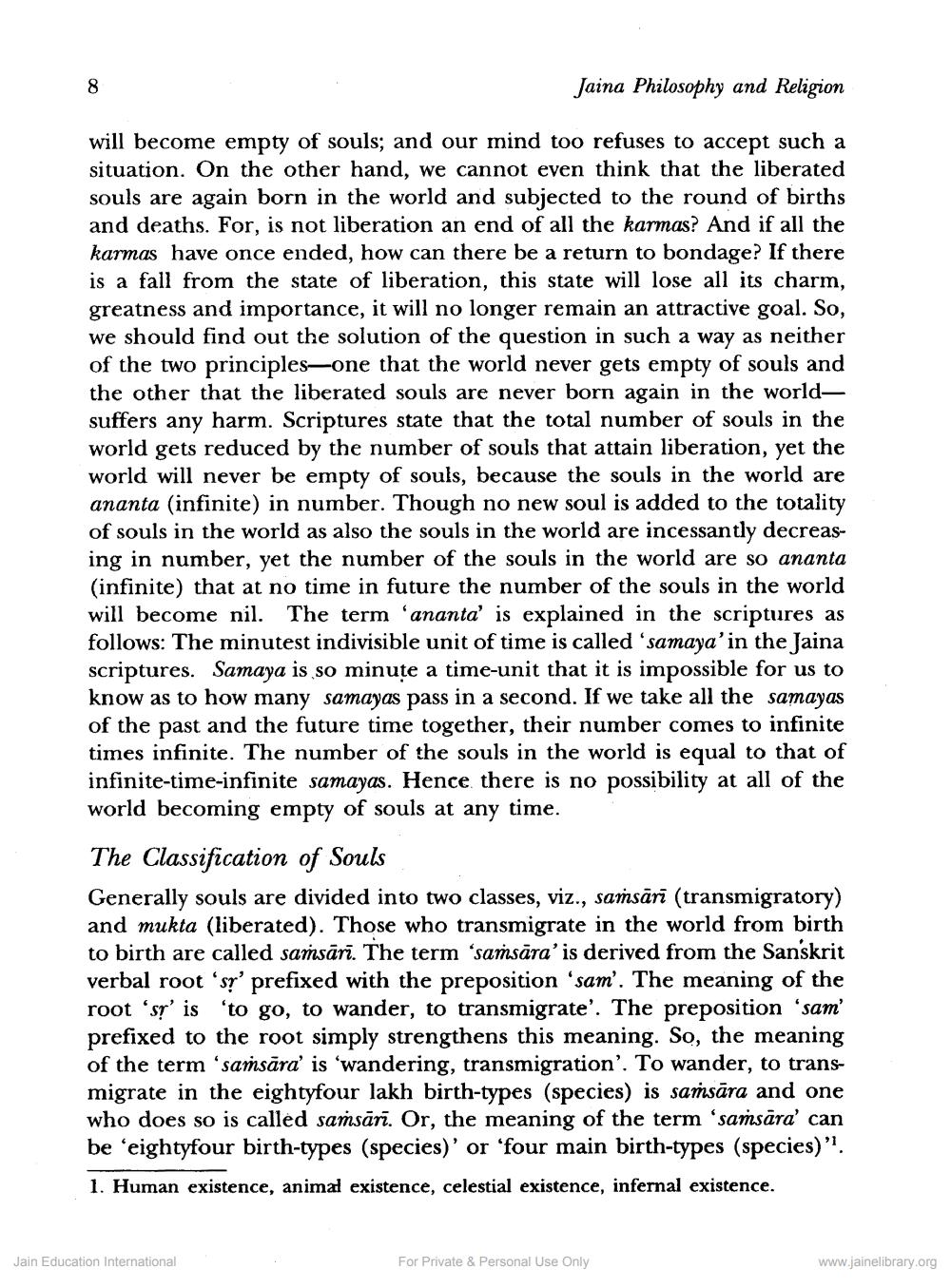________________
Jaina Philosophy and Religion
will become empty of souls; and our mind too refuses to accept such a situation. On the other hand, we cannot even think that the liberated souls are again born in the world and subjected to the round of births and deaths. For, is not liberation an end of all the karmas? And if all the karmas have once ended, how can there be a return to bondage? If there is a fall from the state of liberation, this state will lose all its charm, greatness and importance, it will no longer remain an attractive goal. So, we should find out the solution of the question in such a way as neither of the two principles-one that the world never gets empty of souls and the other that the liberated souls are never born again in the world, suffers any harm. Scriptures state that the total number of souls in the world gets reduced by the number of souls that attain liberation, yet the world will never be empty of souls, because the souls in the world are ananta (infinite) in number. Though no new soul is added to the totality of souls in the world as also the souls in the world are incessantly decreasing in number, yet the number of the souls in the world are so ananta (infinite) that at no time in future the number of the souls in the world will become nil. The term 'ananta' is explained in the scriptures as follows: The minutest indivisible unit of time is called 'samaya'in the Jaina scriptures. Samaya is so minute a time-unit that it is impossible for us to know as to how many samayas pass in a second. If we take all the samayas of the past and the future time together, their number comes to infinite times infinite. The number of the souls in the world is equal to that of infinite-time-infinite samayas. Hence there is no possibility at all of the world becoming empty of souls at any time.
The Classification of Souls Generally souls are divided into two classes, viz., samsārī (transmigratory) and mukta (liberated). Those who transmigrate in the world from birth to birth are called samsārī. The term 'saṁsāra' is derived from the Sanskrit verbal root 's?' prefixed with the preposition 'sam'. The meaning of the root 'st' is 'to go, to wander, to transmigrate'. The preposition 'sam' prefixed to the root simply strengthens this meaning. So, the meaning of the term 'saṁsāra' is 'wandering, transmigration'. To wander, to transmigrate in the eightyfour lakh birth-types (species) is saṁsāra and one who does so is called samsārī. Or, the meaning of the term 'samsāra' can be 'eightyfour birth-types (species)' or 'four main birth-types (species)'. 1. Human existence, animal existence, celestial existence, infernal existence.
Jain Education International
For Private & Personal Use Only
www.jainelibrary.org




